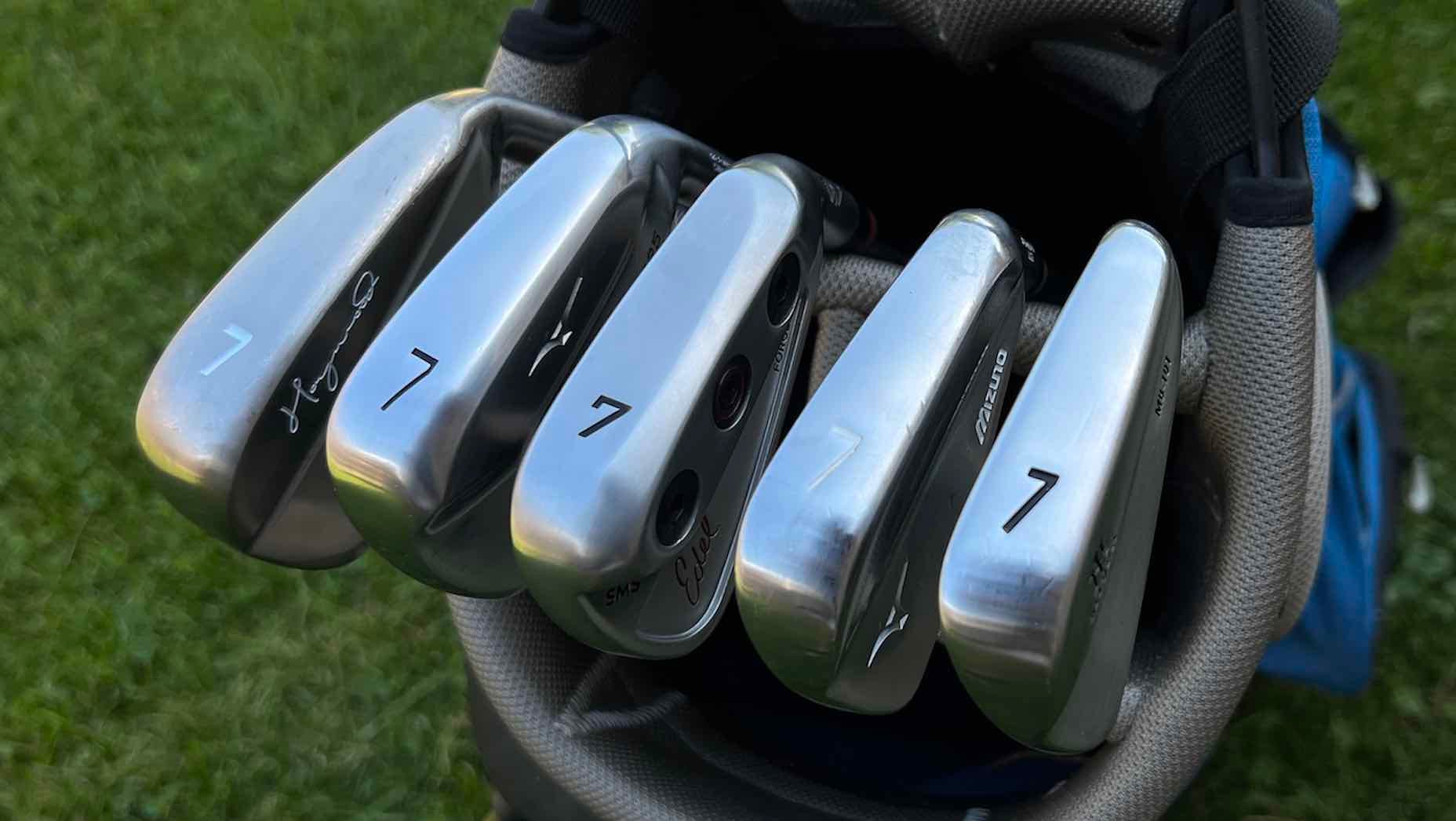When purchasing new irons one of the most overlooked aspects of club design is sole width, and if you are only looking at sole width as an element of forgiveness, there is a good chance you are going to end up making a big mistake.
The traditional line of thought has always been wider-sole irons were intended for higher-handicap golfers looking for more forgiveness, and thin-soled irons on smaller clubs were intended for better ball-strikers. As much as this concept is generally correct, not all golfers are created equal and this is where understanding the finer details can help you make a better decision when purchasing your next set.
Let’s talk delivery
Angle of Attack (AoA) – The angle (vector) at which the club is traveling at impact at a positive angle, or descending in a negative one relative to the ground.
When it comes to iron play, steeper players have a more negative angle of attack into the ball and cause more reaction into the turf. On the opposite side, shallower golfers don’t interact with the ground as much but will still have a negative angle of attack but take much smaller and shallower divots.
Most people understand that hitting up on the ball helps with driving, but how much you hit down into the ball plays a big part in iron play.
Dynamic loft: The measured amount of loft the club head delivered at impact relative to the ground. This is called dynamic loft because it is the calculated loft measured at impact while the club is in motion. The actual loft of the golf club when being measured to spec is referred to as static loft.
(When angle of attack is properly paired up with dynamic loft, that creates compression, and if you would like to better understand compression and how to create it check this out here: How to better compress the ball with your irons.)
Wide vs. thin soles
Regardless of your handicap, if you are a golfer with a steeper angle of attack (5° down or higher with a 7-iron), it is more beneficial to play an iron with a mid to wider sole, because it helps the club travel through the ground more efficiently. The best way to describe this efficient contact is at impact it should feel like the club quickly skips through the turf, even when you take a divot.
If you are golfer on the steeper side and are playing an iron with a sole that is too thin, it will often feel like the club is getting stuck in the ground and slowing down — aka hitting it “fat.” Another sign that the sole you are using isn’t wide enough is as a steeper player, contact will be higher on the face of the iron causing the ball to fly higher than intended and come up short.
If you are a golfer on the shallower side with your attack angle (-4 to -1° down with a 7-iron), irons with a medium to thinner sole allow the sole to properly interact with the ground closer to or just after impact in the way it was designed. If a shallow player is using an iron with a sole width that is too wide it will result in shots that are hit too low on the club face and feel like the club in skipping into the ball with the leading edge.
So next time you’re looking for new irons, pay close attention to your angle of attack, what your missed shots are doing, and how the clubs feel relative to the shots you are hitting. Like a lot of parts of the club-fitting process, sole width isn’t just about your handicap — it’s about what happens at impact.
Want to overhaul your bag for 2022? Find a fitting location near you at GOLF’s affiliate company True Spec Golf. For more on the latest gear news and information, check out our latest Fully Equipped podcast below.
